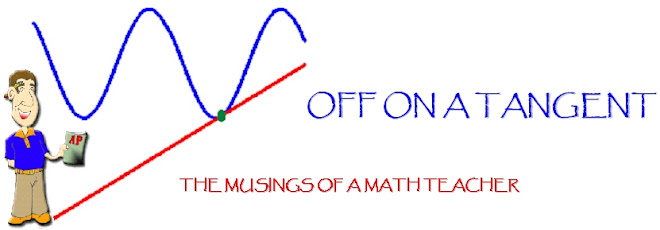 Sunday is supposed to be a day of rest of Biblical proportions. In fact, some of the most gentle, authentic people I've ever met, my wife's wonderful grandparents, held Sunday so sacred, they used to say, "Anything you do on a Sunday will come undone on a Monday." I sure hope there's a loophole in that theology, cause I've folded quite a bit of laundry today. I think we all know what they mean, though. Sunday should be sacred. . . but is it anymore? Sure, many flock to church to have their spiritual and emotional batteries recharged, but is this act alone really honoring the sacred Sunday tradition? I guess it comes down to how you define "rest."
Sunday is supposed to be a day of rest of Biblical proportions. In fact, some of the most gentle, authentic people I've ever met, my wife's wonderful grandparents, held Sunday so sacred, they used to say, "Anything you do on a Sunday will come undone on a Monday." I sure hope there's a loophole in that theology, cause I've folded quite a bit of laundry today. I think we all know what they mean, though. Sunday should be sacred. . . but is it anymore? Sure, many flock to church to have their spiritual and emotional batteries recharged, but is this act alone really honoring the sacred Sunday tradition? I guess it comes down to how you define "rest."To some, working in the yard is a nice, peaceful change to the drudgery and monotony of the work week. To others, going into the office with no one around can loosely constitute as "rest." To me, cleaning up my shop, picking up around the house, folding laundry, doing Monday Mail, playing tennis, barbecuing a brisket, grading papers, going for a long run, and flying a kite constitute a slow, restful day.
Today, though, I've had the luxury of merely doing the pick-up-around-the-house and laundry duties, so I've had a chance to read through some journals I routinely keep (which has been very peaceful and restful.) You see, I'm bit of an eccentric introvert: I pursue individual intellectual pursuits as a way of resting. I especially like to read, primarily non-fiction (which is often more interesting and unbelievable that fiction.) When reading, I always keep a pen and journal nearby. When I read a passage I like, I put a small dot in the book next to the passage, write the page number in the back of the book, then transcribe the passage into a handwritten journal, documenting the source, page number and year.
Today I pulled out the first such journal I ever started in January 2001. It was the first time I had the opportunity to go back and carefully reflect on why I thought it was important then and whether it was still salient to me today (of which I'll spare you the metacognitive introspection.) Here are a few passages I thought were poignant and memorable seven years ago (especially the first few, which actually inspired me to keep such a journal.)
- The spiral [notebook] is itself inspirational, a bit of chromium cursiveness worming through and uniting otherwise easily scattered pages, just as handwritten script links together what is, on the book's page, and un-umbilicaled sequence of discreet letters.--Nicholas Baker, Harper's Magazine, Jan 2001
- Memory is not wisdom: idiots can rote volumes."--Martin Tupper, Proverbial Philosophy, 1838
- Perhaps the best thing in it comes from the mouth of the unblushingly illiterate and good-for-nothing abbot [Erasmus or Rotterdam] when he says, "With immense labor learning is obtained: and then you have to die," which is better still in its native Latin, "Imensis laboribus comparatur enditio: ac post moriendum est;" and which, if not original, remains consummate and unanswerable.--George Saintsbury, A Last Vintage
- [W]hile. . . transcribing may appear to be a form of close and exclusive concentration, it has an equally important element of peacable meditative mindlessness as well, like playing with a paper clip. Reading is fast, but writing is slow--it retards thought's due process; it consumes irreplaceable scupperfuls of time, it pushes every competing utterance away.--Nicholas Baker, Harper's Magazine, 2001
- But labour of the hands, even when pursued to the verge of drudgery, is perhaps never the worst form of idleness. It has a constant and imperishable moral, and to the scholar, it yields a classic result.--Thoreau, Walden
- Two of Six Rule: All humor rises at least two of these six dimensions. 1) Cuteness 2) Meanness 3) Bizarreness 4) Recognizability 5) Naughtiness 6) Cleverness (Exaggeration, Pun, Broken Logic, etc.) It doesn't matter which two dimensions you use. It doesn't matter if you use more than two. The only rule is hta you have to use at least two of the six.--Scott Adams: The Joy Of Work
- Feeling is not an intellectual exercise. We must feel, not think, about feeling. And so, let us do something we all recognize as childish. Let us take the risk of being children.--Gerry Spence: How to Argue and Win Every Time
- Why always coast on the surface and never open the interior of Nature, not by science, which is surface still, but by poetry? Is not the Vast an element of the mind?--Emerson: Education, 1840
- "Teachers are not supposed to be in it for the money; they're supposed to be in it for the children"--a sentiment that sounds reasonable enough until we remember that even the most altruistic teachers have been know to produce children themselves, and that teachers' children have been know to eat.--Garret Keizer: "Why we Hate Teachers"






No comments:
Post a Comment